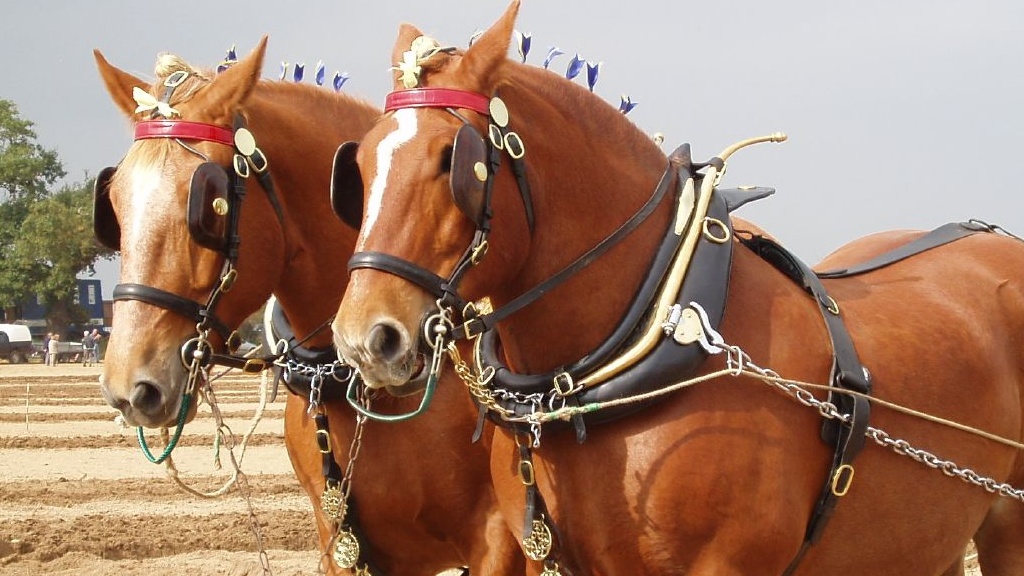Rare horse ‘saved from extinction’ as scientists welcome birth of foal with pre-selected sex
Landmark arrival offers hope that ‘sexed semen’ could halt decline of other uncommon breeds

A free daily email with the biggest news stories of the day – and the best features from TheWeek.com
You are now subscribed
Your newsletter sign-up was successful
One of Britain’s rarest horse breeds is being pulled back from the brink of extinction after scientists successfully bred a foal of pre-determined sex.
The “milestone” birth of the Suffolk Punch filly is “believed to be the first time a horse has been born in the UK after its sex was chosen by scientists”, The Telegraph reports.
The unusual breed has long been associated with Britain’s agricultural industry, but the industrialisation of farming has seen Suffolk Punch numbers dwindle. Today, only 72 remain in the UK, with fewer than 300 worldwide - “meaning every filly born is vital to their survival”, says the Daily Mail.
The Week
Escape your echo chamber. Get the facts behind the news, plus analysis from multiple perspectives.

Sign up for The Week's Free Newsletters
From our morning news briefing to a weekly Good News Newsletter, get the best of The Week delivered directly to your inbox.
From our morning news briefing to a weekly Good News Newsletter, get the best of The Week delivered directly to your inbox.
As breeders battle to save the rare horse, 19 colts and 15 fillies were born in Britain last year, but “more mares are desperately needed to widen the breeding pool”, The Telegraph adds.
The unique birth was a result of “insemination using equine-breeding technology” provided by Shropshire-based lab and stud farm Stallion AI Services, which teamed up with other breeders, scientists and academics for the project.
“In a first for rare breeds, ‘female’ sperm cells were selected, giving a 96% chance of a filly foal,” according to Horse & Hound.
The selected mare became pregnant after the second imsemination attempt, and gave birth to her world-first offspring last Thursday. “The foal, which is yet to be named, and mum, Euston Ruby, are both doing well,” says The Telegraph.
A free daily email with the biggest news stories of the day – and the best features from TheWeek.com
Stallion AI founder Tullis Matson said that shifting the gender balance of Suffolk Punch foals by just 10% per year could make a “huge difference” to the breed, which is on the “border of extinction”.
“What this technology can do for all rare breeds is outstanding,” Matson added. “Hopefully, this may be a way to stop these breeds from disappearing.”
Joe Evans is the world news editor at TheWeek.co.uk. He joined the team in 2019 and held roles including deputy news editor and acting news editor before moving into his current position in early 2021. He is a regular panellist on The Week Unwrapped podcast, discussing politics and foreign affairs.
Before joining The Week, he worked as a freelance journalist covering the UK and Ireland for German newspapers and magazines. A series of features on Brexit and the Irish border got him nominated for the Hostwriter Prize in 2019. Prior to settling down in London, he lived and worked in Cambodia, where he ran communications for a non-governmental organisation and worked as a journalist covering Southeast Asia. He has a master’s degree in journalism from City, University of London, and before that studied English Literature at the University of Manchester.